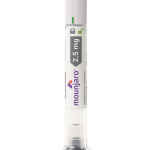
Defiance, tantrums, aggression: All signs of a condition called conduct disorder, which Mental Health America says affects up to 16% of boys and 9% of girls. Now, research is revealing real differences in the brain structure of children and youths with conduct disorder, compared to those without the condition. Specifically, the study of the brains of people ages 7 through 21 found that the brain’s outer layer, the cerebral cortex, was smaller than is typical for people with conduct disorder. “Conduct disorder has among the highest burden of any mental disorder in youth,” noted study co-author Dr. Daniel Pine. “However, it remains understudied and under-treated.” “Understanding brain differences associated with the disorder takes us one step closer to developing more effective approaches to diagnosis and treatment, with the ultimate aim of improving long-term outcomes for children and their families,” said Pine. He’s chief of the Section on Development and Affective Neuroscience at the National Institute of Mental Health (NIMH). The new study was published July 16 in the journal Lancet Psychiatry. In their research, Pine and his colleagues used MRI scans to examine the brains of about 2,400 children and youth who’d enrolled in 15 different studies from around the world. About half of the participants had been diagnosed with conduct disorder while the other half had not. The scans looked specifically at the thickness… read on > read on >


























-300x200.jpg)










